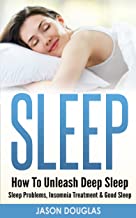Sleep Disorder
The collective term sleep disorder refers to conditions that affect sleep quality, timing, or duration and impact a person’s ability to properly function while they are awake. These disorders can contribute to other medical problems, and some may also be symptoms for underlying mental health issues.
Cluster Number:
Wiki Number: PW204
Diagnosis: Sleep Disorder
US Patients:
World Patients:
Sex Ratio:
Age Onset: children and adults
Brain Area: hippocampus-plaque increases lead to cell death
Symptoms: A “blanket term” for insomnia, apnea, narcolepsy, hypersomnia, sleepwalking, night terrors and sleeping sickness
Progression: sleep-disordered breathing, restless legs syndrome, bruxism-tooth grinding, sleep paralysis, shift-work
Causes: increased medication, changes in circadian rhythm, physiological problems, stress, traumatic brain injury, Alzheimer’s, allergies
Medications: for narcolepsy use modifinil
Therapies: hypnosis, music-inducing relaxation
Youtube Video:
The Rise of Sleep Disorders And What We Can Do About It
Amazon or Library Book: Sleep: How To Unleash Deep Sleep
Click the book to link or order from Amazon.

